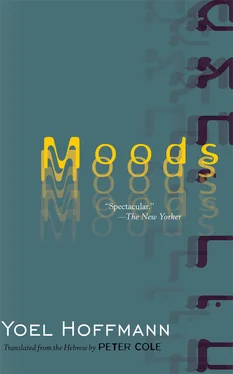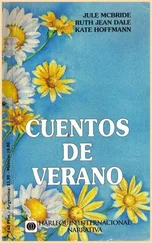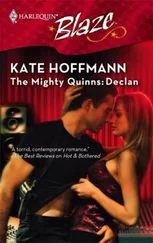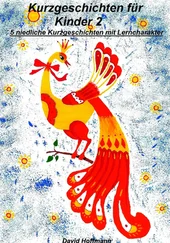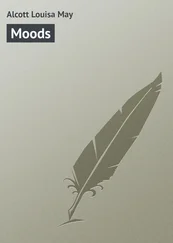[84]
Some of our readers are no doubt saying to themselves: At last, a real story. I wonder what will happen next.
We don’t know if we can say what will happen next. For that we’d need real inspiration, and inspiration, as we know, comes from somewhere else, like prophecy.
Where will Zivit go once she’s fully dressed? Will she wake Ohad up before she leaves the apartment? And will Ohad go home, change his clothes, shower, and go from there to work? Will he call his ex and ask how the child is? Or maybe he’ll call another woman? And so on and on with questions like these.
Once we met a woman named Rina Bartoldi. We remember that she said, “That hasn’t yet been determined” (something to do with the age of the universe, 14.5 billion years or less). One could still see signs of beauty in her face, as in certain neighborhoods in south Tel Aviv.
We remember her even though some thirty years have passed because her age and the age of the universe were linked to one another, and because of the great distance between the two (that is, the two ages) and also because she stood in the world and spoke of its start and used the ugly word determined . All that and the fact that she looked like a pelican.
If this book didn’t already have a name we’d call it The Long Loneliness of Rina Bartoldi .
[85]
Meanwhile (that is, between the first part of the previous section and the second) we also saw a doctor who specialized in hypertension.
The doctor himself was a little pale and his head tilted to the side. Generally speaking. There are many people whose head tilts to the side. Apparently it’s hard to hold the head straight, and most of the time we’re preoccupied with getting it right.
The doctor wasn’t especially concerned about our blood pressure. We were there for all of seven minutes and still, as soon as we left we felt a kind of longing. We drove home through Kiryat Motzkin and Acre and Nahariya, and all the while the sun was on our left.
The moon hadn’t yet risen, or maybe it was very pale and therefore we didn’t see it. But we saw other things (the sea, for instance, and the Nahariya train station) and all this we thought we should share with our readers.
[86]
And also our dreams. That we’re flying above a lake or buying a kerosene stove with a chimney pipe for two hundred and twenty shekels.
We can also share with our readers that gray, amorphous primal sadness, which has no clear-cut place and no particular reason for being, apart from the awful apathy of things (like walls or entire cities or voices on the radio) that take up their places, by themselves, while nothing of them comes to us.
Once we saw the philosopher Yeshayahu Leibowitz in Jerusalem, next to the old Bezalel Art Academy. He was walking alone and carrying a jar in his hand.
[87]
We can do something godlike and create a person. Let’s call him Sha’ul Sachs. We’ll give him a defect. One arm is too long, or his chin is.
We’ll lead him from place to place. He’ll have a sun of his own and a moon. Others will call him Sha’ul, and some will call him Mr. Sachs.
He’ll gradually grow older (or grow gradually older — we’re entitled to choose between the two) and in the end he’ll die and we can buy a rectangle in the newspaper— Ma’ariv or Ha’aretz —and write inside it: Sha’ul Sachs is no more.
The sun and the moon we’ll leave in place. That way we can see the actual sun and the fictive one side by side, and the two moons.
Once, in Rome, next to the main train station, we went into a church and confessed before a priest.
This is what we said to him: Father, we’ve been carrying around heavy feelings of guilt. Heavy feelings of regret. Heavy feelings of hope. And, nonetheless, great love.
The priest said: Don’t look in books. Sometimes they say one thing and God has decreed something else. We’ve heard that the red wine in Palestine is excellent.
[88]
In Alexandroupoli we met a Greek priest. He was sitting on a stool in front of a blacksmith’s shop, holding a skewer in his hand and biting into the flesh of a grilled chicken.
We not live here, he said. On high mountain. Come each shix mont or sho, ate. . dreenk. . woamen. . haahaa.
He said something in Greek to the blacksmith and the blacksmith made a circle with his finger and thumb and stuck a finger of his other hand into the circle, maybe because he thought we hadn’t understood the word woamen.
Beyond the shop there was a boulevard lined with palm trees and the Greek sun hovered on the horizon.
Then we went to the train station and there we were told that the train to Bulgaria would leave the following day at shix. The shky went red and the shun shet.
[89]
We’ve written elsewhere of our trip on the train to Bulgaria and how in the train there were only us and an old Bulgarian woman who drank wine and ate sugar and then what happened at the border crossing. Now we remember how we went to the city of Gabrovo because we’d heard it had a museum of humor.
It was a very hot day and maybe because of that no one in Gabrovo smiled when we asked where the museum was. In the museum (possibly in the entire city) there was what they call a blackout, and therefore the long neon lights weren’t lit and the big ceiling fans were still. In most of the rooms there weren’t any windows, and so we walked around in the dark, sweating profusely, and barely able to see the outlines (which is to say, the wooden frames) of the drawings. Moreover, in each room of the museum there stood a scowling Bulgarian woman in a guard’s uniform.
We walked out into the light of day and saw, at the entrance to the museum, a gypsy making an old bear dance. We thought about all the memories that the bear must have held in its soul, and we were filled with awe.
[90]
Nothing comes to an end. There are extremely subtle things like a changing wind or passing thought and they are endless. Or things that are extremely thick like a cough or a clothes closet, and they too have no end. Or very slow things and very fast things that are fast and slow at once (like the memory of trains or mounds of coal) and therefore do not come to an end.
We saw physics textbooks and noticed how much sadness was trapped between the crumpled covers. We saw forks whose tines were taller than the spires of Notre Dame.
We saw things that were very large, like the space through which starlight passes, and we saw wonders such as a tree or a weather vane or a convoy of ants and Russian men and Belgian men (and women of course), and all of these things are endless.
[91]
Apropos Belgium. There was a thick-skinned woman selling latkes in the market in Antwerp. We asked for one and she held the latke in her hand and didn’t stretch her hand out toward us. We stood there like that for a while, as though in a film that had gotten stuck, until we realized that first we had to offer up the coin and only then would we receive the latke.
No doubt there were at the time latke thieves in Antwerp, and the woman was wary. And in fact the temptation to steal latkes in the Antwerp market is great. Likewise the temptation to stick one’s foot out (while someone’s walking blithely along) is great, in the market at Antwerp, or elsewhere.
Or to slap someone without any reason. But no more than that. Knives are foreign to our nature. Also pistols and rifles.
But we’re happy if soup gets spilled on someone, especially if it has chicken legs in it. Generally speaking. We’re happy at the sight of others’ misfortune.
[92]
A journalist by the name of Kashkhanski wrote what he wrote about another book of ours in which we spoke candidly of our lives.
He had a certain compassion about him, something one often finds in this country’s builders. Most likely he had a hard time holding back tears, and would look as though through a fog at the white buildings of Tel Aviv.
Читать дальше
